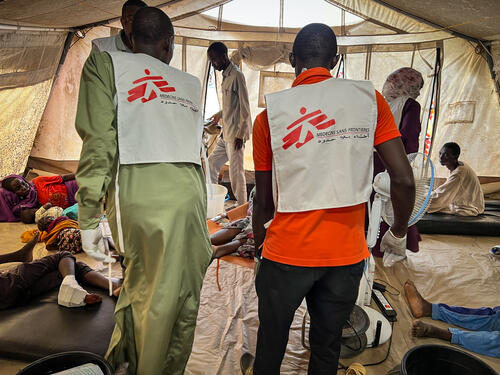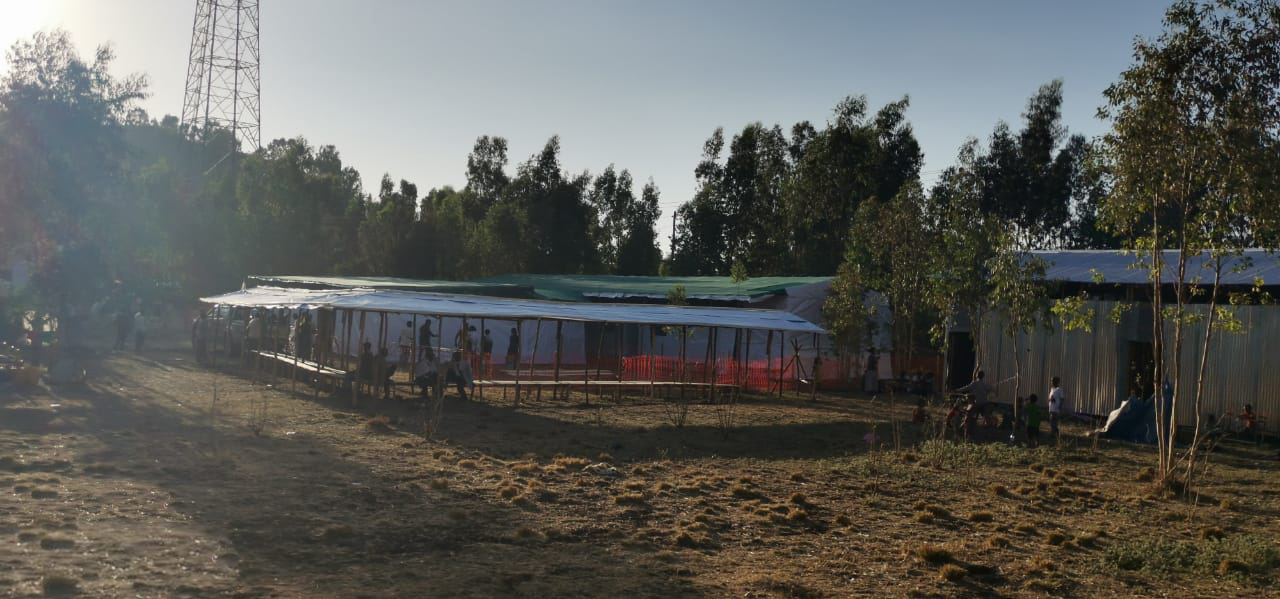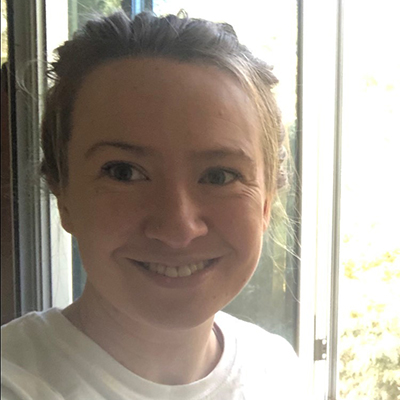Ethiopia: How to build a clinic in a race against time
In conflict zones, whole communities often have to flee to find safety. But what happens when they arrive at their destination? Dr Rowena Neville shares a story from Tigray, Ethiopia...
As we finish work after a busy day in the MSF primary care clinics across Shire town, we are pulled together for a brief meeting. It is March 2021, and I am in Shire working with Médecins Sans Frontières / Doctors Without Borders (MSF).
The briefing
With escalating tension in Western Zone, the past few days have seen bus after bus of displaced people arrive in this already packed town. Several thousand are sleeping in one of the few remaining empty primary schools.
Camped in the school they will have almost no access to any healthcare, and have likely been without any for months.
So our project coordination team want to know - can we set up a new clinic, ready to open on Monday?
We look at each other, laugh a little, and start to plan.
We have been expanding our services every week, trying to keep up with the continual flow of people arriving...
Expanding every week
It’s Thursday. MSF have been in Shire for a few months now, providing primary care in the camps for internally displaced people (IDPs) in the town. So far we are one of the only international organisations that has been able to do this so quickly.
We have been expanding our services every week, trying to keep up with the continual flow of people arriving to the relative safety of Shire.
People arrive sometimes with no more than the clothes on their backs, sometimes with an assortment of mattresses, cooking pots and water cans. They set up living spaces where they can in the bare classrooms of schools throughout town.
The schools had been closed due to COVID-19… something that has now been all but forgotten in a region with too much else on its mind. Aware that it is likely still spreading but now unchecked and deprioritised, our colleagues half-joke that "the conflict stopped COVID for us".

Our work saves lives
At capacity
Starting with one mobile clinic in our first week, we now run a fixed clinic every day in the town’s two largest camps, and a mobile clinic that visits three others.
The few government health centres in Shire are struggling to provide services to the existing residents, and cannot cope with huge influx of people from all over the region. The banks are closed, so no one has any money to buy medication or pay for care at private medical facilities.
Without our clinics people would be largely without access to any healthcare. We also arrange referrals to the one hospital in town, which our team is supporting too. But we are at capacity, stretched with staff, supplies, equipment and space. So, we have a lot to do before Monday.
From scratch
We visit Hibret primary school and find the corrugated sheds we had tentatively planned to site the clinic in are now also full of cooking fires, bed rolls and makeshift family boundary walls. We will need to build our own clinic from scratch.
Thankfully, one of the best things about working with MSF is the teamwork; the diversity of people making up our teams, and the experience and skills they bring.
We have international staff from all over the world, many with decades of experience in the most challenging of contexts, and we have local staff dedicated to the care of their communities, and with a wealth of local knowledge. Working together, we start to build a new clinic.
Everyone wants to help
Our nurse manager, with an eye for detail and experience working in busy clinics, gets out his coloured pens and turns architect, planning down to the location of each chair how best to manage the flow of hundreds of patients a day.
By the end of the day he hands the plan over to our logistician who, with many years of MSF experience, as far as I can tell can build and fix anything with anything. He gets to work with his team of labourers, equipped with wooden poles, plastic sheeting and limitless energy. They are aided by kids from the camp, desperate to be given something to carry. Everyone wants to help.
Teamwork
The water and sanitation (WATSAN) team have the critical role of ensuring safe water supply and waste management for the whole camp, and will arrange clean water and toilets for the clinic.
The epidemiology team are already busy collecting information from the new arrivals, identifying any potential for disease outbreaks.
The community health team include local staff who live among these communities themselves. They explain to anxious and exhausted families the clinic will be ready soon.
Our pharmacy team create a new set of medication trunks, but we all know we are racing through drugs faster than our supply is able to get in. The supply team work with colleagues from Addis to Amsterdam to try to ensure we don’t run out.
A new team
I am the medical activity manager, and get started immediately on another round of recruitment of clinical officers. These are the local health care workers who will see the bulk of the patients.
Many of the candidates are displaced themselves; they are acutely aware of the medical need among their communities and they are desperate to work.
In a region where most healthcare workers have seen their work stations burnt, damaged and looted, if I can be organised enough we will have plenty of dedicated staff ready to work by Monday.
Our nurses, midwives and mental health teams are similarly busy with tests and interviews, to find the rest of the staff we'll need.
Monday
After working all weekend, come Monday the estimated 2,500 people squeezed into Hibret primary school have a clinic.
They have an outpatient department that can treat the pneumonia, diarrhoea and malaria their children are suffering from.
They have a basic emergency room where trauma wounds can be treated and those needing referral to hospital can be stabilised.
They have an antenatal team that can provide care and support to women exhausted with pregnancy on top of displacement, food shortage and horrifying experiences sexual violence.
They have a nutrition team to provide supplementary feeding to the many malnourished children.
They have a mental health team that can start to help them process what they are going through.
And we have a huge sense of achievement.
Later in the week we come together for another meeting. There are now internally displaced people in at least three additional sites across town… can the mobile clinic expand to visit these? We look at each other, laugh a little, and start to plan.
MSF is a neutral and independent medical humanitarian organisation that delivers aid based on needs alone. MSF has been present in Ethiopia since 1984 and is currently working in seven regions.
On 24 June 2021, just a few months after the events described in this post, our colleagues Maria Hernandez, Yohannes Halefom and Tedros Gebremariam were brutally murdered in the Tigray region of Ethiopia. No one has claimed responsibility and the circumstances around their deaths remain unclear. MSF took the painful decision to suspend its activities in Abi Adi, Adigrat and Axum, leaving a gap in life-saving assistance for the populations of central and eastern Tigray.
More than ever, this attack highlights the need for all parties to the conflict to provide assurances that humanitarian work can be carried out safely in Tigray and the rest of Ethiopia. We reiterate our call on the Government of Ethiopia and its allies, as well as the Tigray People’s Liberation Front, to conduct an immediate investigation into circumstances that led to the death of our colleagues.
2022 update: It has now been a year since the deaths of our colleagues. More information about the status of the investigation can be found here.

